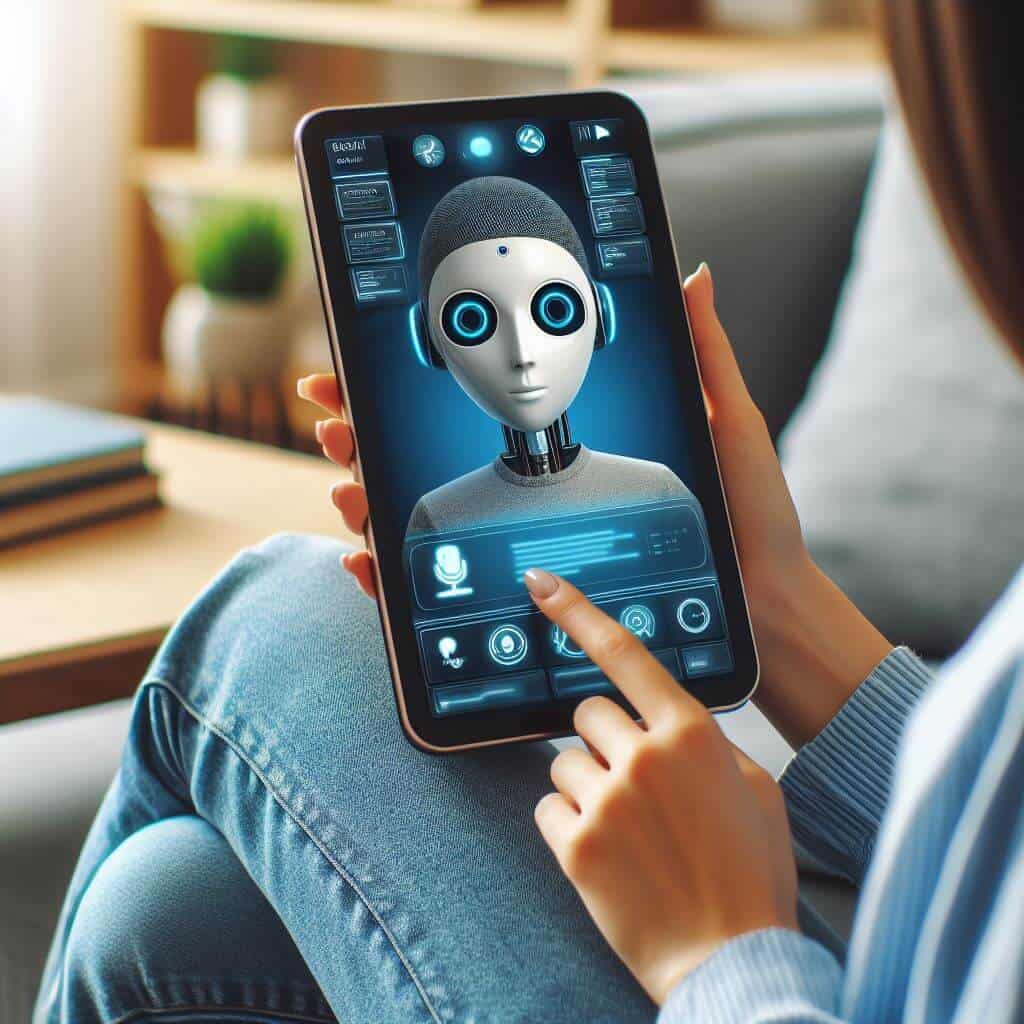An Ai Chatbot Designed To Provide Emotional Support

- March 1, 2024
- allix
- AI Projects
Rapid advances in natural language processing (NLP) and the creation of sophisticated large language models (LLM) have paved the way for specialized conversational interfaces. These interfaces are tailored to answer different categories of requests, from AI tools that help with educational issues to guidance on financial, legal, or healthcare issues.
A team from Hefei University of Technology and Hefei National Comprehensive Science Center recently put effort into developing an AI-based framework aimed at providing informal but potentially useful emotional support. Their work was presented at the International Conference on Multimedia Modeling in Amsterdam, which ran from January 29 to February 2. This initiative introduced EmoAda, a dialogue system aimed at engaging users in empathetic conversations and providing basic psychological support at a lower cost.
Xiao Sun, one of the study participants, shared with Tech Xplore that the motivation behind their study was the rising incidence of psychological conditions such as depression and anxiety, especially after the COVID-19 outbreak, as well as the notable shortage of professional psychological services. The research builds on previous research, including research by Fei-Fei Li and others on measuring depression using speech and facial expressions, work by Xiao Sun’s team on multimodal attention networks for personality analysis, and the creation of AI systems for emotional support, such as Google’s. LaMDA and ChatGPT from OpenAI.
The main goal of their recent research was to develop an accessible mental health support tool capable of understanding the emotional state of users based on various inputs to offer personalized and thoughtful feedback. This tool is not intended to replace professional care, but to offer comfort and help users increase their mental adaptation, which is closely related to psychological well-being.
“EmoAda is conceived as a multimodal system that promotes emotional engagement and psychological adaptation, aimed at expanding psychological support for those with limited access to mental health services,” Sun explained. It works by collecting real-time multimodal data including audio, video, and text data from users, analyzing emotional signals, and using a multimodal large language model for immediate emotion recognition, psychological profiling, and strategy formulation for management. EmoAda can detect users’ emotions by examining a mixture of sensory information, including their speech, facial expressions captured on video, and written texts. It then generates customized support dialogs, delivered either in text form or via a digital shape.
Depending on the expressed needs and difficulties of the user, the system can recommend several useful activities, some of which are available directly through the EmoAda platform, such as guided meditation sessions and music playlists for relaxation or stress relief. In real-life testing, EmoAda has demonstrated its effectiveness in providing natural and sensual emotional support. Sun noted that users often prefer interacting with AI because it helps reduce concerns about privacy and public judgment by providing a private and unbiased space for people to share their feelings and concerns. The 24/7 availability of artificial intelligence like EmoAda is another key advantage for users who need help at any time.
Feedback from initial trials has highlighted that users appreciate the anonymity of the platform, which allows them to share sensitive information that they would normally be hesitant to discuss in person. Looking ahead, this AI solution could offer basic support to those who cannot afford or quickly access professional mental health care. In addition, EmoAda may inspire further research leading to the development of additional AI-powered mental health platforms.
Sun cited future research directions, including improving the multimodal emotional interaction model to minimize misinformation, improve productivity, reduce operational costs, and use expert psychological knowledge to improve system reliability and professional trust.
Categories
- AI Education (39)
- AI in Business (65)
- AI Projects (87)
- Research (107)
- Uncategorized (5)
Other posts
- Medical Treatment in Brazil: Advanced Healthcare, Skilled Specialists, and Patient-Focused Care
- Dental Treatment in China: Modern Technology, Skilled Dentists, and Comprehensive Care for International Patients
- Plastic Surgery in China: Advanced Aesthetic Medicine Supported by Precision, Innovation, and Skilled Specialists
- Ophthalmology in China: Advanced Eye Care Guided by Innovation, Expertise, and Patient-Focused Treatment
- Finding Care, Calm, and Confidence: Why Patients Are Looking Toward Beroun in the Czech Republic
- Choosing Health, Energy, and a New Future: Exploring Gastric Bypass in Diyarbakır, Turkey
- When Facial Hair Tells Your Story: Considering a Beard Transplant in Phuket, Thailand
- When Prevention Becomes Power: Understanding Liver Cirrhosis Risk and Modern Screening Approaches in Spain
- When the Abdomen Signals Something Serious: Understanding Abdominal Aortic Aneurysm and Getting Expert Evaluation in Islamabad
- When Back Pain Becomes More Than “Just Pain”: Understanding the Need for Microdiscectomy
Newsletter
Get regular updates on data science, artificial intelligence, machine



